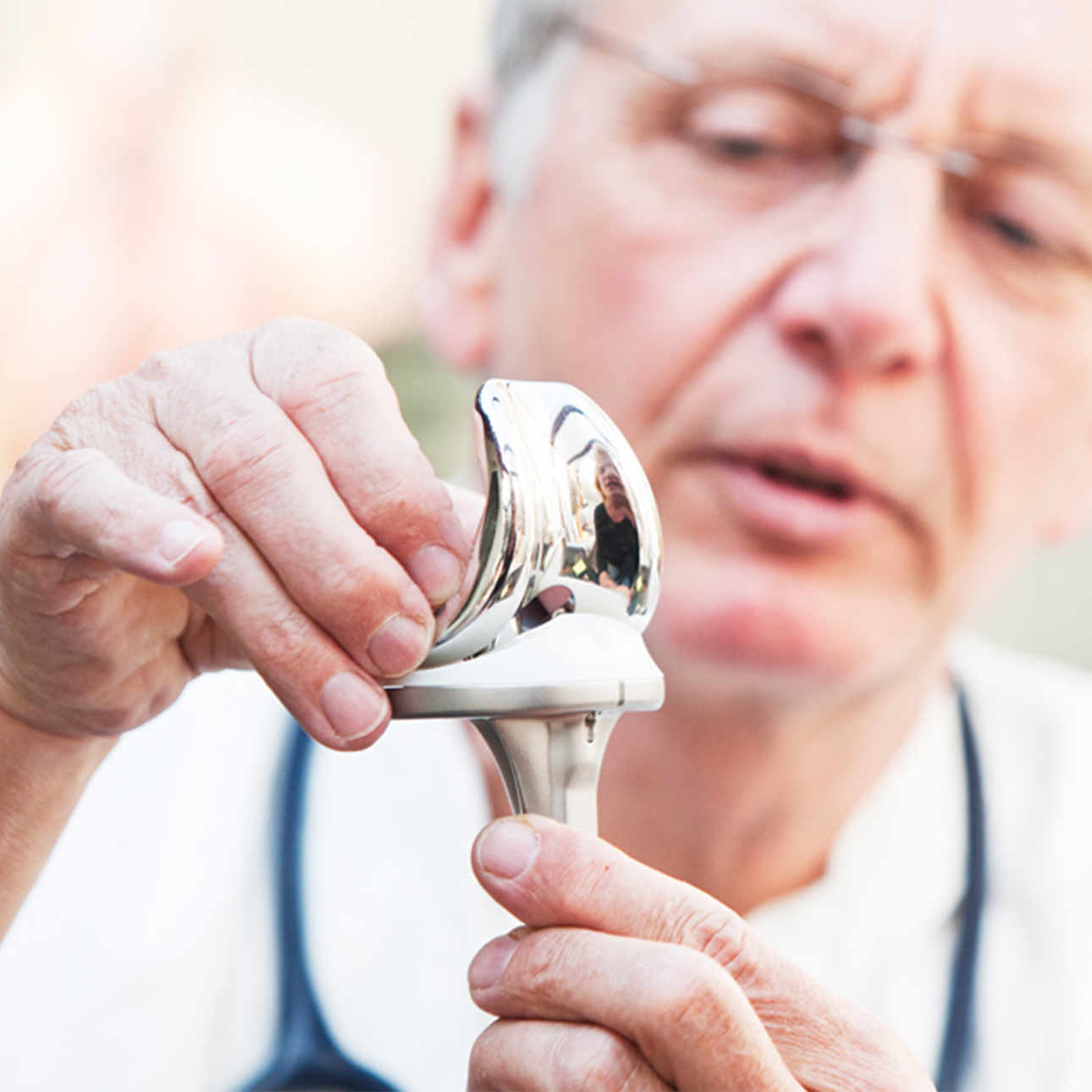
Osteoarthritis of the Knee
Treatments
Medications, changing your activity level and using walking supports may be helpful but if these are not effective, you may want to consider knee surgery. Inability to tolerate or complications from pain medications or failure to substantially improve with other treatments such as cortisone injections, physical therapy or other surgeries may suggest a knee operation. There are two surgical treatments for osteoarthritis of the knee.
An osteotomy is surgery that reshapes the shinbone (tibia) or thighbone (femur) to improve your knee's alignment. The healthy bone and cartilage is realigned to compensate for the damaged tissue. Knee osteotomy surgically repositions the joint, realigning the mechanical axis of the limb away from the diseased area. This lets your knee glide freely and carry weight evenly. Osteotomies may restore knee function and significantly diminish osteoarthritis pain.
Total knee replacement surgery is another procedure that can help relieve your pain, correct your leg deformity and help you resume your normal activities. This procedure calls for removing the damaged cartilage and bone and inserting new metal and plastic joint surfaces to restore the alignment and function of your knee. The decision to have total knee replacement surgery should involve you, your family, your family physician and your orthopedic surgeon.
UCSF Health medical specialists have reviewed this information. It is for educational purposes only and is not intended to replace the advice of your doctor or other health care provider. We encourage you to discuss any questions or concerns you may have with your provider.









